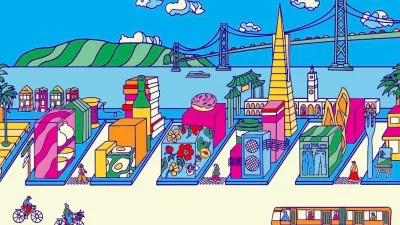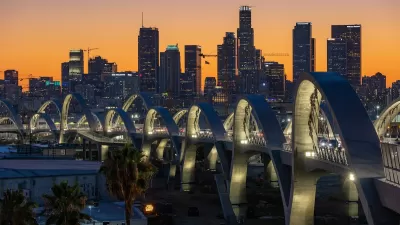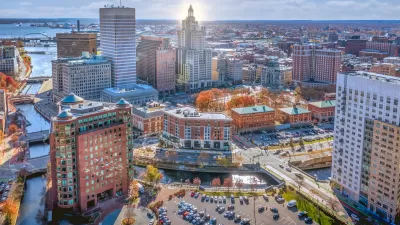And why that may not be such a bad thing.

In an opinion piece in The Conversation, Nicholas Dagen Bloom argues that the flight of big box stores from central cities is in part due to “flawed corporate strategies” that set them up for failure in urban areas.
“Retailers saddled with high debt, overexpansion, shoplifting losses, slumping sales and online competition are shedding stores fast. But this contraction lopsidedly affects city dwellers, who often lack the shopping options and price competition suburbanites enjoy,” Dagen Bloom writes. A combination of higher poverty rates, a glut of new stores clustered too close together, and the media-induced panic over violent shoplifting crimes have led to a rash of downtown store closings.
As I see it, the urban chain store implosion raises questions about whether suburban-style retail really does much for cities. These stores are mediocre job creators, undercut local entrepreneurs, often pay relatively low property taxes and build ugly parking lots.
For Dagen Bloom, perhaps “shoehorning suburban-style stores into urban neighborhoods” was never the solution officials hoped it would be. Perhaps the future of downtown commerce lies in the more traditional small store.

Study: Maui’s Plan to Convert Vacation Rentals to Long-Term Housing Could Cause Nearly $1 Billion Economic Loss
The plan would reduce visitor accommodation by 25,% resulting in 1,900 jobs lost.

North Texas Transit Leaders Tout Benefits of TOD for Growing Region
At a summit focused on transit-oriented development, policymakers discussed how North Texas’ expanded light rail system can serve as a tool for economic growth.

Using Old Oil and Gas Wells for Green Energy Storage
Penn State researchers have found that repurposing abandoned oil and gas wells for geothermal-assisted compressed-air energy storage can boost efficiency, reduce environmental risks, and support clean energy and job transitions.

Private Donations Propel Early Restoration of Palisades Playground
Los Angeles has secured over $1.3 million in private funding to restore the Pacific Palisades playground months ahead of schedule, creating a modern, accessible space that supports community healing after recent wildfires.

From Blight to Benefit: Early Results From California’s Equitable Cleanup Program
The Equitable Community Revitalization Grant (ECRG) program is reshaping brownfield redevelopment by prioritizing projects in low-income and environmental justice communities, emphasizing equity, transparency, and community benefits.

Planting Relief: Tackling Las Vegas Heat One Tree at a Time
Nevada Plants, a Las Vegas-based nonprofit, is combating the city’s extreme urban heat by giving away trees to residents in underserved neighborhoods, promoting shade, sustainability, and community health.
Urban Design for Planners 1: Software Tools
This six-course series explores essential urban design concepts using open source software and equips planners with the tools they need to participate fully in the urban design process.
Planning for Universal Design
Learn the tools for implementing Universal Design in planning regulations.
Ascent Environmental
Borough of Carlisle
Institute for Housing and Urban Development Studies (IHS)
City of Grandview
Harvard GSD Executive Education
Toledo-Lucas County Plan Commissions
Salt Lake City
NYU Wagner Graduate School of Public Service





























